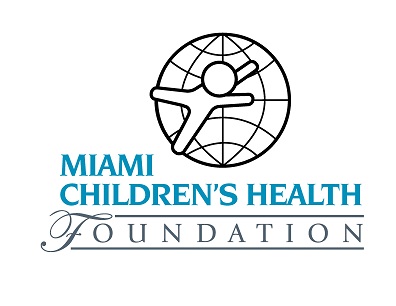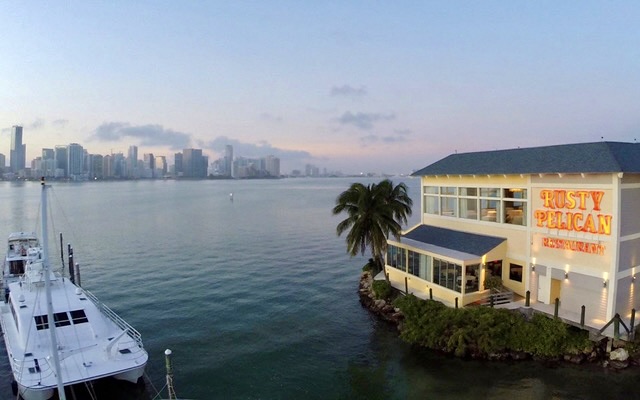January Meeting

Thank you to our generous sponsor:
Pre-Workshop Presentation
Making Charitable Donations with Unique and Hard to Liquidate Assets
Presented by:
Gary Snerson, J.D., Partner, Charitable Solutions, LLC
Joseph H. Deary, Senior Director of Planned Giving, Miami Children’s Health Foundation
This presentation will examine the reasons that charities often are reluctant to accept unique and hard to liquidate assets as gifts. It will discuss the techniques that professionals can employ with their clients to improve the conditions under which a charity might make exceptions to their existing policies with regard to the accepting of real estate, C-corp and S-corp stock, LLC memberships, Limited Partnerships and other assets. Finally, it will explore how these same types of unique and hard to liquidate assets may be used in planned gifts.
Gary Snerson, JD, serves as Partner, Charitable Estate Settlement Services. For the past 15 years, he served as the Senior Vice President of Estates and Special Investments at the Harvard Endowment. He also worked extensively with planned giving and development officers throughout Harvard University and implemented a variety of planned gifts funded with traditional and unique assets. Examples of planned gifts that Gary secured for Harvard include inter vivos charitable remainder unitrusts and charitable lead trusts, charitable gift annuities, testamentary trusts, retained life estates and bequests. For 25 years prior to accepting his position at Harvard, Gary practiced law in Boston, Massachusetts and specialized in Estate Planning and Trust Administration. His practice also included business and commercial real estate law. As a part of academia, Gary has taught numerous undergraduate and graduate courses in finance, law, negotiation and estate planning at several Boston area institutions including Bentley University, Boston University and Lesley University. Furthermore, he has spoken to numerous groups including the NEPGG, IMI Institute and the Ivy League Plus Planned Giving Group. Gary received his bachelor’s in science in business administration (cum laude) and master’s in business administration from Babson College. He earned his juris doctor from Georgetown Law School and a master’s of science degree in finance degree from the Carroll School at Boston College University.
Joseph H. Deary (Joe) began as Senior Director of Planned Giving at the Miami Children’s Health Foundation in November, 2013. Joe was educated at Wilbraham-Monson Academy, has a Bachelor’s degree in education from Southern Connecticut State University and earned a certificate of advanced study as well as a graduate degree both from Harvard University. He has completed two certificate programs in trust/wealth management from Northwestern University in conjunction with the American Bankers Association. Joe has spent over 25 years in wealth management working with high net worth individuals and multi-generational families primarily with Bank of Boston and Mellon Bank Philadelphia. During his years at these institutions he specialized in complex high net worth families coordinating all aspects of their investment, fiduciary, tax and estate matters as well as many other business and personal matters. These families included the descendants of the American Woolen Company fortune, the Monopoly game heiress and family, the parents and descendants of the founder of CBS, William S. Paley as well as an Ohio family with 93 trusts and family members living around the world. During this time he taught basic trust services at the New England Banking Institute and wrote the chapter on trust banking for their basic text. He also served on the board of the Forsyth Dental Foundation which served needy children of Boston and trained dental hygienists as well as the planned giving board of the Providence Public Library. Following his career in wealth management, Joe began his career in the not for profit area as Director of the Annual Fund at the Kingswood-Oxford School in West Hartford where he also established their planned giving program. He then went on to be Director of Planned Giving for the American Heart Association in New England. In addition, he has served as a consultant for the Freedom Trust Company in Boston as well the Fort Lauderdale Historical Society.
Workshop Presentation
What Every Wealth Preservation Professional Needs to Know to Prepare and Review Gift and Estate Tax Returns
Presented by Mark Scott, J.D., LL.M.
Principal, Estate & Trust Services, Kaufman Rossin
A well-drafted estate plan can easily be derailed by improperly reporting the transactions and tax effects on a gift or estate tax return. The risk of errors is compounded when the advisor creating the plan is not the same professional preparing the return. It is imperative that all estate planning professionals are well-versed in the intricacies of preparing gift and estate tax returns to ensure that the intended result of an estate plan is achieved and clients are not charged with unnecessary and costly taxes. A gift or estate tax return should never be an after-thought. The tax compliance of the estate plan is just as critical as the plan itself.
This session will identify issues where mistakes are commonly found to assist attorneys and CPAs who prepare gift and estate tax returns for clients and/or review prior returns for accuracy.
Mark Scott joined Kaufman Rossin in 2000 and is a principal in the estate and trust department. Prior to joining the Firm, he practiced estate, trust, and tax law in Boca Raton. Mark’s areas of concentration include complex estate tax planning, gift tax planning, trust tax planning, and estate and gift tax return examinations. He enjoys the sophisticated challenges offered in the nonresident noncitizen and offshore trust planning regimes. Mark holds a Master of Laws in Taxation and a Juris Doctorate from Chicago-Kent College of Law. He received his Bachelor’s degree from the University of Florida. Mark is a member of The Florida Bar and served on the Continuing Legal Education Committee. He is a Director and the current Secretary for The Florida Bar Tax Section and serves as a member of the Executive Council and Long Range Planning Committee. In addition, Mark is the current Vice President of the Greater Miami Tax Institute; and is on the Board of Directors for the Estate Planning Council of Greater Miami. Mark was the Co-Chair of the 7th Annual Joint Tax and Estate Planning Seminar, benefiting the Community Foundation, the Jewish Community Foundation, and the United Way, all in Broward County. Mark serves on the Miami Foundation’s GLBT Community Projects Advisory Committee. He is a member of the Mount Sinai Hospital Young Founders and served on the Young Presidents’ Board of Directors. Mark previously represented Miami on Lambda Legal’s National Leadership Council. Over the years, he has been a professional advisor for the United Way and provided pro bono legal representation through various entities.
Dinner Presentation
Tax Efficient Structuring of U.S. Real Estate Investments by Foreign Persons
Presented by:
Michael J. Bruno, J.D., LL.M., Associate, Baker & McKenzie LLP
Steve Hadjilogiou, J.D., LL.M., Partner, Baker & McKenzie LLP
It almost never makes sense for foreign individuals to invest in U.S. real estate in the form of a domestic or foreign corporation. Many clients are advised to invest in real estate through a foreign corporation to avoid the potential imposition of U.S. estate tax. However, domestic and foreign corporations are subject to higher corporate rates on capital gains upon the sale of the real estate, do not provide the benefit of a step up in basis in the real estate upon death of the owner, in Florida there is a corporate income tax rate that does not apply to individuals and trusts, and finally the branch profits tax could apply. We always suggest the use of a two-tier partnership structure for investment in U.S. real estate. In larger sized investments, this can be coupled with the use of financing. However, the desirability of using a two-tier partnership as opposed to a corporate structure could change if some of President Elect Trump’s tax initiatives become law. We will also discuss the current trend and the future of U.S. real estate investment by foreign individuals.
Steve Hadjilogiou is a partner in Baker & McKenzie's Miami Tax Practice Group. Mr. Hadjilogiou focuses his practice on tax planning. He has substantial experience advising on transfer pricing, tax-related intellectual property matters, Subpart F and foreign investment in US real property. He has also worked on the taxation of partnerships and corporations, and international corporate reorganizations. He also counsels on state and local tax, inbound and outbound transactional planning, and other corporate and real estate tax issues in several jurisdictions across the world. He has represented various Fortune 500 companies and major privately held businesses in their tax planning and supply chain.
Michael Bruno is an associate in Baker & McKenzie's Miami Tax Practice Group. He advises clients on mergers, acquisitions, restructurings and divestitures in a variety of business contexts, including with respect to investments in U.S. real estate. He provides domestic and international tax planning advice to corporations, partnerships, and limited liability companies. He also regularly advises on domestic and international tax issues that arise with respect to investments in the United States by foreign individuals, as well as investments outside of the United States by U.S. individuals.
- 2017-01 - Gary Snerson and Joseph H. Deary - Making Charitable Donations with Unique and Hard to Liq
- 2017-01 - Mark Scott - What Every Wealth Preservation Professional Needs to Know to Prepare and Revi
- 2017-01 - Mark Scott - What Every Wealth Preservation Professional Needs to Know to Prepare and Revi
- 2017-01 - Michael J. Bruno, J.D., LL.M. and Steve Hadjilogiou, J.D., LL.M. - Tax Efficient Structuri
- 2017-01 - Gary Snerson and Joseph Deary
- 2017-01 - Mark Scott
- 2017-01 - Michael J. Bruno and Steve Hadjilogiou

